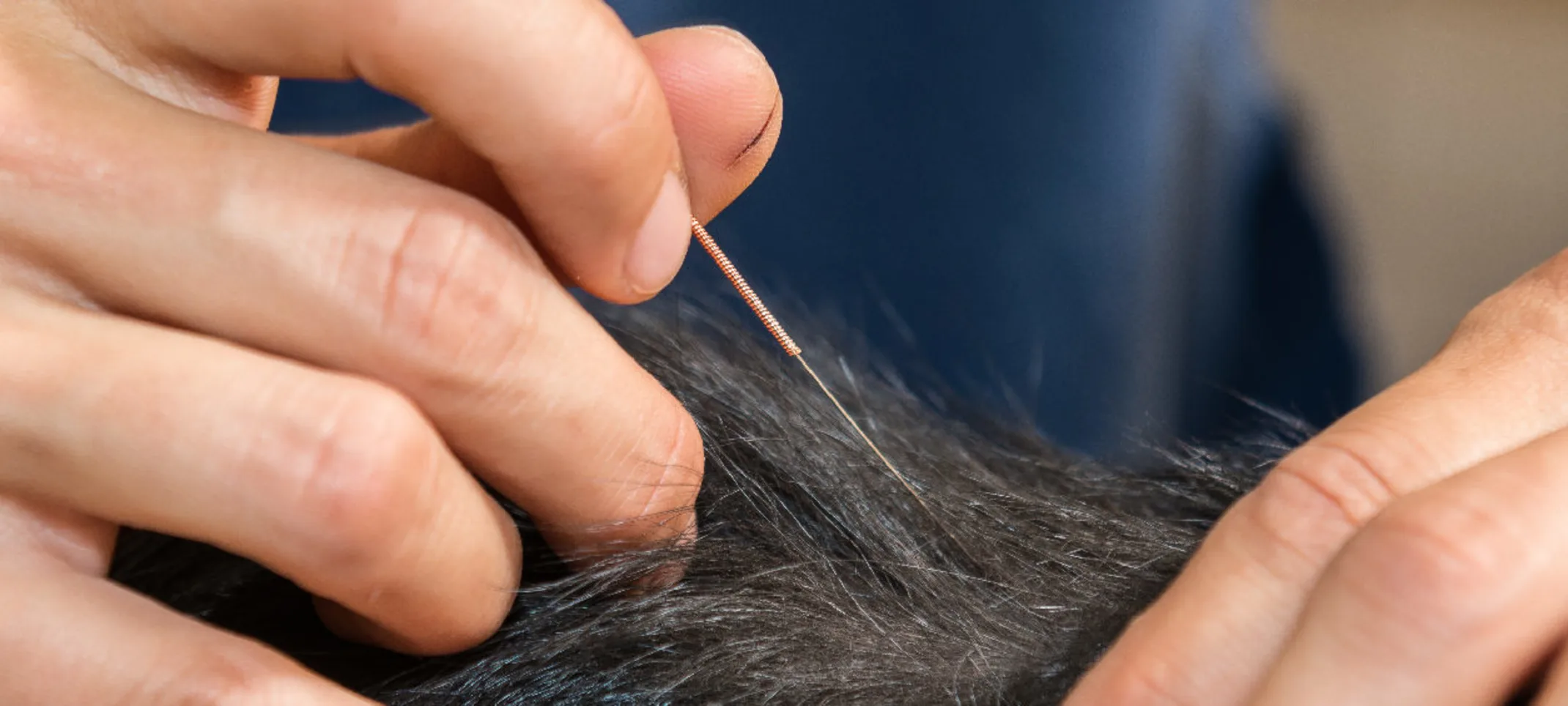Allandale Veterinary Hospital
Acupuncture Therapy
Acupuncture therapy for your pet is a pain-free way to treat a variety of conditions, primarily those dealing with inflammation and pain.

Acupuncture
Allandale Veterinary Hospital is delighted to offer acupuncture therapy and traditional Chinese veterinary medicine to your beloved companions!
WHAT IS TRADITIONAL CHINESE VETERINARY MEDICINE (TCVM)?
TCVM is made up of four different components: 1. Acupuncture 2. Herbal medicine 3. Food therapy 4. Tui-na (medical manipulation). Acupuncture in particular involves the insertion of very fine and sterile needles into specific acupoints on your pet’s body to cause a beneficial and healing effect. These Acupoints can also be stimulated through the use of electrical stimulation, moxibustion (heat), and injection of diluted b12 also known as aquapuncture.
WHAT IS THE SCIENCE BEHIND ACUPUNCTURE?
Acupoints have been found to be specific locations where there is a high density of free nerve endings, mast cells, small arterioles, and lymphatic vessels.
By stimulating these specific points we are causing the release of:
Beta-endorphins
Serotonin
Qi (“chee”) energy
And other neurotransmitters
WHAT IS QI?
Qi is the life force or vital energy of an organism. It is made up of two contrasting energy forms: Yin and Yang. This energy travels along channels/Meridians within the body.
In a happy and healthy animal, Qi is constantly flowing throughout them with a perfect balance between Yin and Yang.
When the balance and flow of Qi is interrupted or blocked by something (i.e. disease, viral infection, bacterial infection, etc.) it causes an imbalance between Yin and Yang. This imbalance can often cause pain and disease.
Acupuncture stimulation helps to remove these blockages, frees up the flow of Qi, and returns the balance between Yin and Yang. This allows the body to heal itself and return to homeostasis.
IS ACUPUNCTURE SAFE?
YES! Acupuncture is considered a very safe alternative therapy when practiced by a trained and certified veterinarian. Very few negative effects have been documented.
DOES ACUPUNCTURE HURT?
RARELY! The needles used in acupuncture are VERY fine (think width of a hair). Many animals find the treatments relaxing and may fall asleep during their sessions. Sedation is very rarely needed for pets to receive an acupuncture treatment.
HOW LONG DOES EACH TREATMENT TAKE?
Once an initial TCVM assessment is done on your companion, their first acupuncture session can begin. Typically sessions are 20-45min in length after the initial assessment is performed.
HOW SOON CAN WE EXPECT RESULTS?
Depending on the condition being treated, results can be seen immediately or after several treatments. In general a minimum of 3-5 treatments 1-2 weeks apart are needed for chronic conditions before results are seen.
HOW MANY TREATMENTS ARE NEEDED?
It all depends on your pet and the condition being treated. Treatments can be done daily, weekly, monthly, or further apart depending on how severe the condition is and how long your pet has been dealing with it.
BENEFITS OF ACUPUNCTURE
Decrease pain
Stimulate tissue healing
Gastrointestinal motility regulation
Anti-inflammatory effects
Immunoregulation
Reproductive and hormone regulation
Reduce fevers
PRECAUTIONS OF ACUPUNCTURE
Acupuncture should be used with caution when treating:
Fractures
Pregnancy
Open wounds
Tumors
HOW DO WE UTILIZE ACUPUNCTUREAND TCVM AT AVH?
At AVH we combine conventional mainstream therapy with non-conventional therapies (acupuncture, TCVM etc.) in order to provide your pet with the most integrative approach leading to the best possible outcome for your companion.
COMMON CONDITIONS TREATED
Musculoskeletal disorders:
Muscle soreness
Back pain
Osteoarthritis
Degenerative joint disease
Neurological disorders:
Seizures
Intervertebral disk disease
Facial and radial nerve paralysis
Gastrointestinal disorders:
Diarrhea
Gastric ulcers
Colic
Vomiting
Constipation/impactions
OTHER CHRONIC CONDITIONS:
Skin problems
Asthma
Cough
Uveitis
Renal failure
Chronic liver diseases
Behavioural problems
Infertility
Cushing’s disease
Hypo/hyperthyroidism
Geriatric weakness
Quality of life/cancer/hospice care
